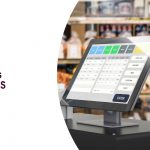Cognitive Intelligence For Businesses: A Smart Move?
Cognitive Intelligence has taken the technology world by storm, being a great topic of conversation among tech-savvy people. Even more alarming, however, is how it has become a popular buzzword for entrepreneurs of today.
Can we really blame them? The technology itself is extremely interesting – it’s a complex mixture of neural networks, artificial intelligence, machine learning, natural language processing, sentiment analysis and contextual awareness. Despite its intricacies, it has found its way into the minds of visionary entrepreneurs, who want nothing but the best, most accurate experience for the end-user.
To incorporate a giant like cognitive intelligence into mere business functions – it’s a lot easier said than done. Let’s look at how ideal such an inclusion of technology can be for a business.
A Potentially Smart Move?
Before we can answer that questions, we need to understand how cognitive intelligence can contribute to a business:
Accurate Data Analysis
Systems built on cognitive intelligence are efficient at collating and cross-referencing information to analyse a situations from all possible angles. They remove all possible errors that a human could bring, and include accuracy that a computer has built-in.
The healthcare industry has used this innovatively; they collect information, reports and data from disparate sources like medical journals, diagnostic tools, past data and more from different hospitals and medical care centers. That way, technology does not replace the doctor – it merely simplifies the task of going through copious amounts of data and processing it to bring forth accurate diagnosis and results.
Increased Efficiency
Cognitive Intelligence mirrors the human thought process by not only analysing data, but predicting future paths as well. This simplifies the entire process that comes after analysis: noticing emerging trends and studying process-centric issues in real-time become simpler and more accurate, while simultaneously reducing risk. Thus, better informed business decisions can be made.
Better Customer Interactions
Since cognitive computing does not remove the “human” out of the system, it can be used to automate the customer experience. They provide relevant contextual information to users, making the interaction extremely to-the-point and void of humane inconsistencies.
Hilton has used this technology and completely turned the travel experience around, with their own robotic concierge Connie; the cognitive computing system successfully gives relevant information about tourist sites, fine dining recommendations, FAQs and more. The experience has been so refreshing that customers feel completely engaged with the company.
Just like the coin that has two sides, cognitive computing has its restraints parallel to its benefits.
Where Do Limitations Lie?
Before we let our decision get biased, let’s glance through the cons that match the pros:
Tedious Training Process
Before cognitive intelligence can be used practically, they must be trained to do so. This can be a very meticulous, lengthy process of putting in data continuously until you start getting the results you want. Sometimes, a few too many wrong outputs can disrupt the entire training process if not handled correctly.
Risk Not Analysed Enough
Although cognitive systems can give a decent result from the data present, they fail to analyse risks created by missing factors. A predictive model can be great at its job, but it won’t give a fully accurate result if it refuses to include external factors. In such cases, human intervention is needed for accuracy.
Not A One-Man Player
Despite its dominance, it still depends highly on human intervention: processes data input, training, in-depth risk analysis and maintenance all need people’s help. Furthermore, the results they give are not entirely concrete “this-or-that” answers; they merely help people to make critical decisions themselves. Therefore, it is understood that cognitive intelligence can’t run on it’s own.
What’s The Answer?
The answer is often mixed at this stage; some people consider it to be the next new era of modern businesses, and so are quick to adopt the system into work functions. Others are doubtful; they don’t consider it trustworthy enough to aid in decision-making, and so prefer to let it slide. If you find yourself tipping towards the sceptic’s side, why can’t you enjoy the benefits of predictive analysis?
Modern POS in Pakistan like Oscar have taken predictive analysis and incorporated it into their Reporting And Analytics System, allowing you to notice emerging trends in your business, and boost them for profitability.
Cognitive computing has definitely revealed itself to be a worthy contender in the business field. However, it still has a long road ahead to traverse; there will be a lot more improvements needed before it becomes entirely mainstream.








